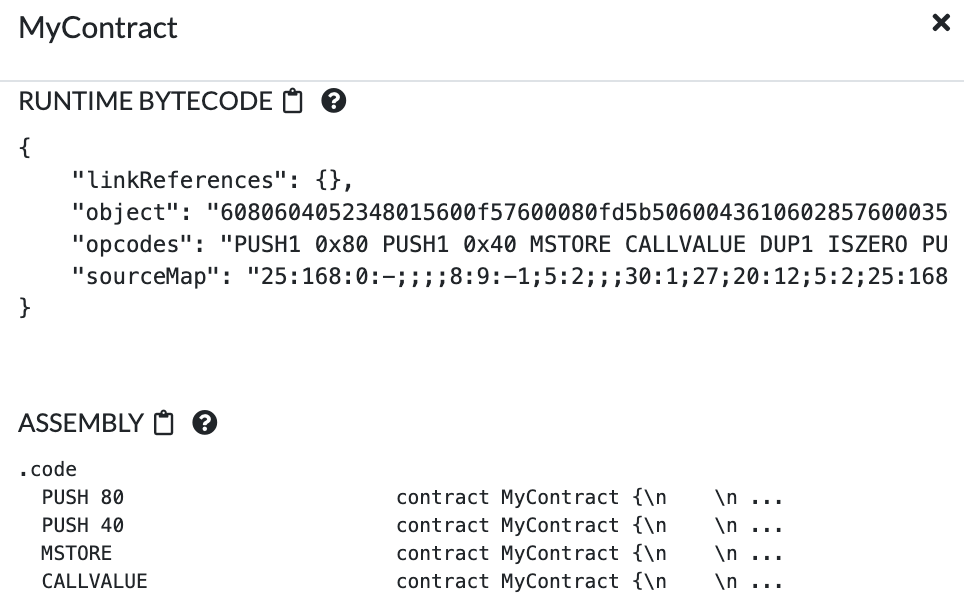Assembly block
pragma solidity ^0.6.1;
contract Hello {
function SayHi() {
assembly {
// assembly code here
}
}
}
Comments
assembly {
// this is a comment
/* this is a multiline
* comment
*/
}
Variables
- Use the
letkeyword to declare variables - Variable is only visible within the block
- Variable will be assigned 0 if not initialized
assembly {
let x := 1
let y // initialized to 0
}
// x and y not visible here
Literals
- decimal or hexadecimal
- strings up to 32 characters
assembly {
let a := 2
let b := 0x03
let c := "hello world"
}
Function
- Take arguments from stack and put results on stack
- Can return multiple values:
let a, b := f(x)
function callF(uint input) public pure returns(uint x, uint y) {
assembly {
function f(val) -> a, b {
a := add(val, 1)
b := val
}
x, y := f(input)
}
}
If
- Conditionally execute code
- No
elseblock
if eq(value, 0) {
value := 3
}
Switch
- Similar to
if, but with more branching options - Fallback or default case:
default - No fall through to following cases
assembly {
switch x
case 0 { x := 1 }
default { x := add(x,1) }
}
Loop
- Repeat operations
break: exit the Loopcontinue: skip to next iteration
function lo(uint max) public pure returns(uint result) {
assembly {
for { let i := 0 }
lt(i, 20)
{ i := add(i, 1) } {
if lt(i,3) { continue }
if gt(i, max) { break }
result := add(result,1)
}
}
}
OpCode
OpCode (Operation Code) is a machine instruction that specifies the operation to be performed - Wikipedia
OpCode References
- Opcodes in Ethereum Yellow Paper
- search for "Arithmetic Operations"
- SHL, SHR, SAR: EIP 145
- Shift Left, Shift Right, Signed Shift Right
- CREATE2: EIP 1014
- EXTCODEHASH: EIP 1052
- code hash of an address

extcodehash
- Used in openzeppelin IsContract() utilitity
- Returns the code hash of a contract
assembly { codehash := extcodehash(accountAddress) }
Bitwise Operations
- Operate at the bit level
- AND, OR, XOR, NOT, SHL, SHR, SAR
- x >> y == x / 2y
- x << y == x * 2y
- Bit Operations
- Bit Twiddling Hacks

Gas Fee
- Fee schedule in Ethereum Yellow Paper
- Some opcodes are more expensive than others
- e.g. multiplication costs 5 gas; shift left costs 3 gas
Lab
Follow the instructions on the readme file of assembly-loop